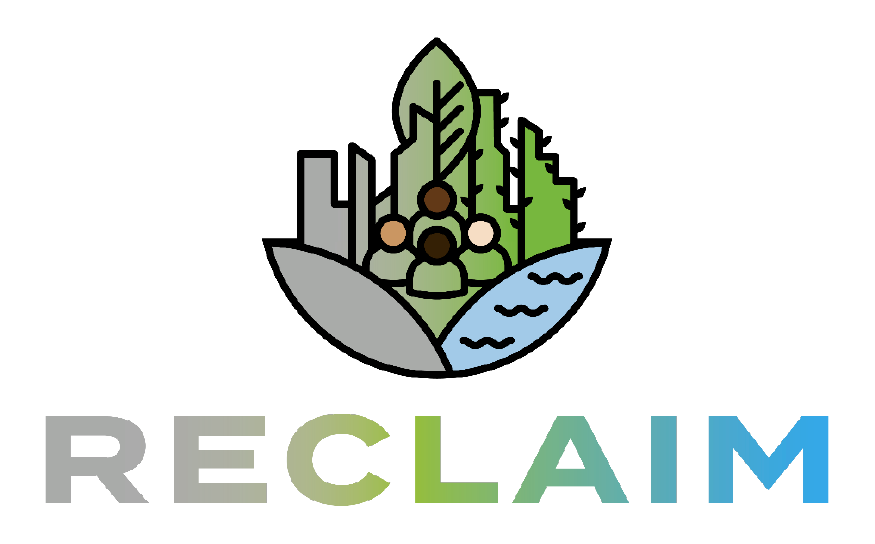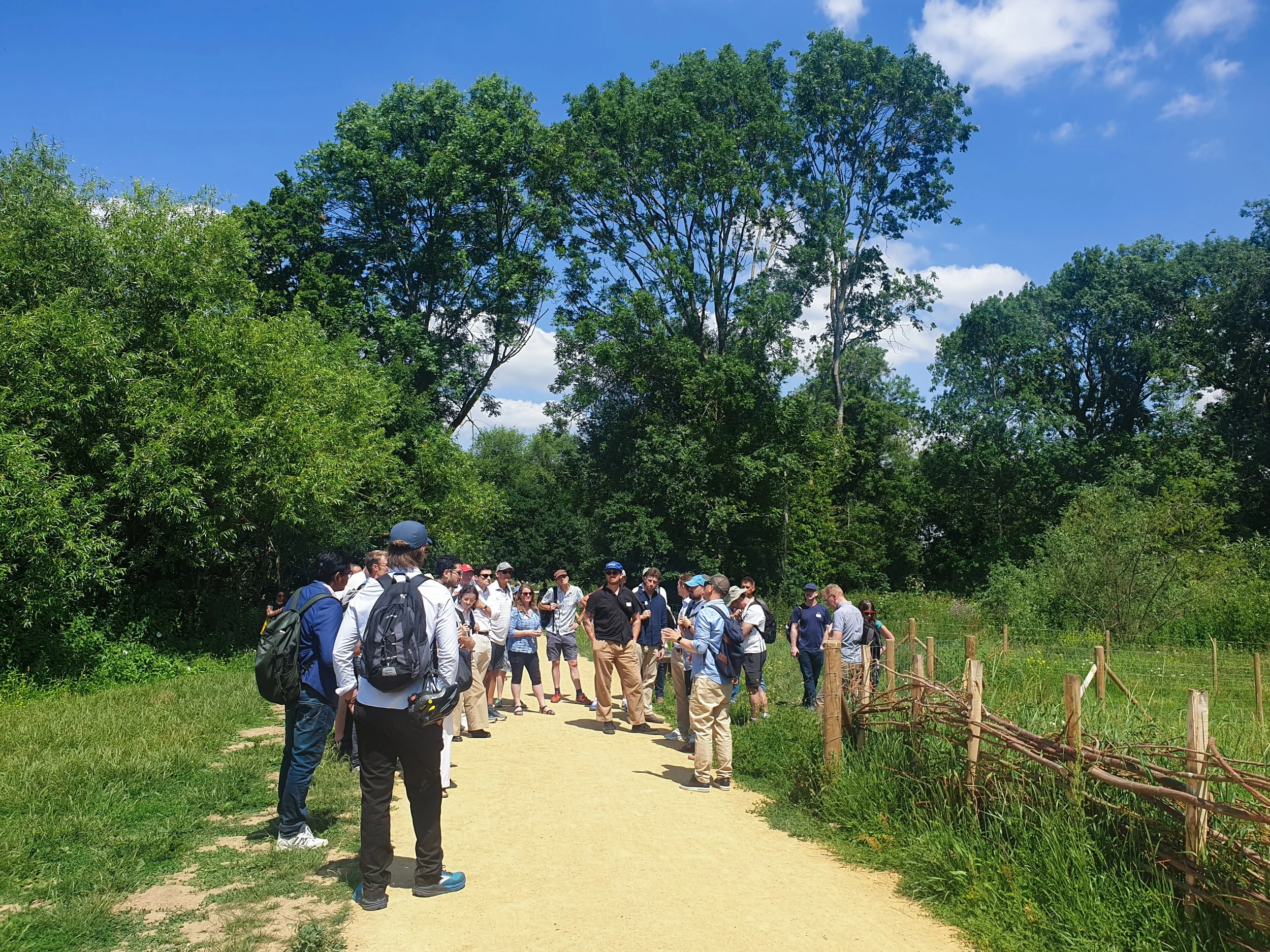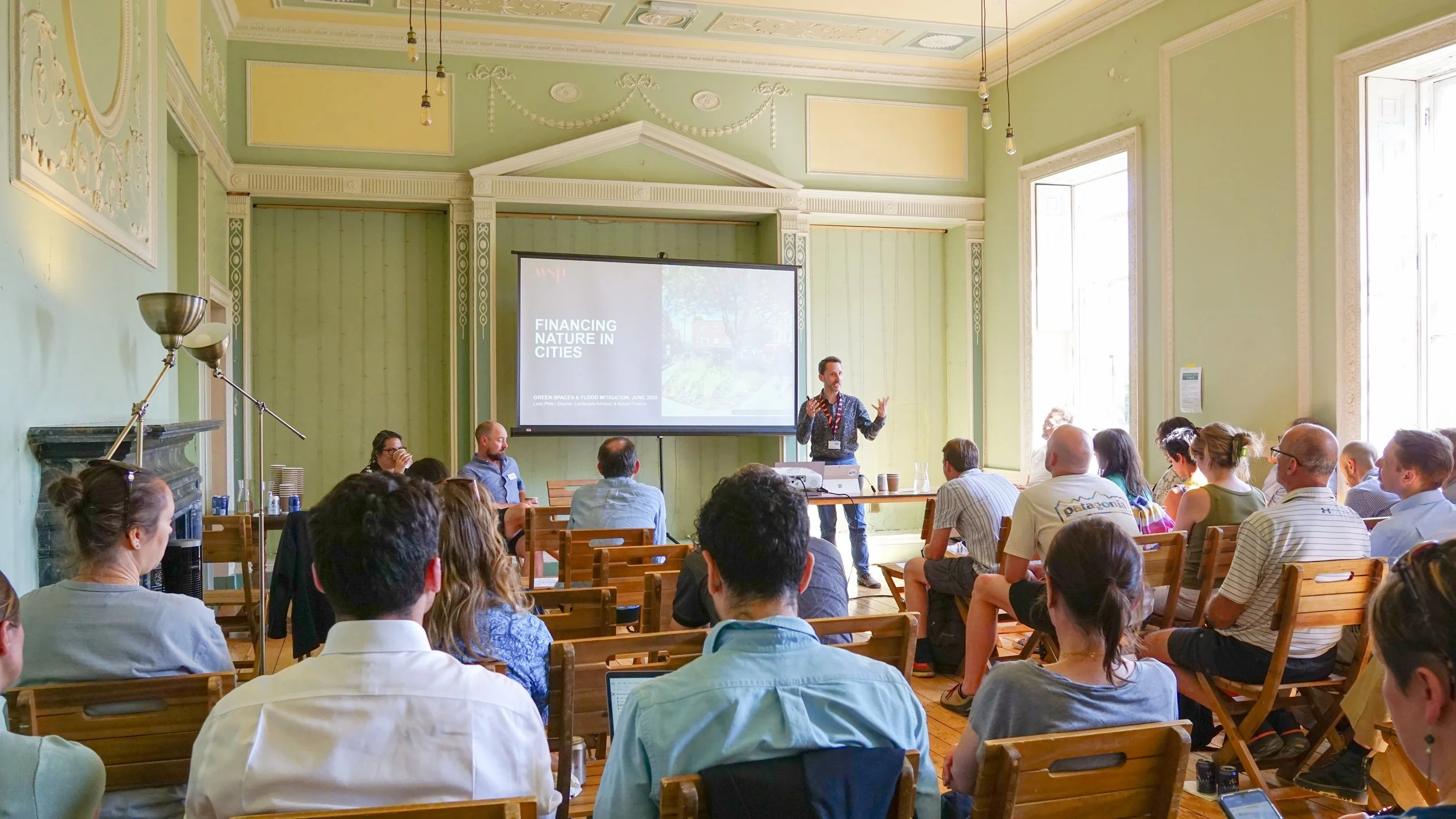Parks for London Workshop on Green Spaces and Flood Mitigation, supported by the RECLAIM Network
Source: Parks for London
Written by Tanvi Desai, Partnerships & Development Officer at Parks for London
By quarter past eleven there was already a large gathering of heads of service, park managers, and other specialists in parks, green and blue infrastructure, recreation, biodiversity and sustainability, as well as engineers, landscape architects, and policy makers. Included were representatives from the London boroughs, independent green spaces, Greater London Authority (GLA), the National Trust, WSP, Thames21, the University of Surrey, and C40 Cities. Everyone gathered in the shade of the historic old Stable Block at Beckenham Place Park chatting and enjoying the blue skies and sunshine.
We were all together for the Green Spaces and Flood Mitigation workshop by Parks for London. The workshop, funded by the RECLAIM Network, was to explore how green and blue infrastructure can be used and adapted to mitigate flooding in urban areas.
Source: Parks for London
We started with walk around the park led by Lewisham Council’s Gavin Plaskitt and Adam Platts, who explained how the park landscape has been adapted to slow the flow of the Ravensbourne river and act as a catchment basin to protect houses and infrastructure in the borough. We ended the tour back at the stable block at lunchtime for a never ending stream of excellent pizzas from the Homestead Café, before moving to the Mansion for the presentations and discussions.
The first session explored real-world case studies at different scales. First, Joe Lewis from Camden Council showed three small sustainable urban drainage system schemes, describing how local communities had connected with them, and showcasing innovative funding solutions including a Chelsea show garden and Community Infrastructure Levy from Planning (that included funding for maintenance! Joe said – just ask for it!!).
Next, Gavin from Lewisham Council gave more detail on how they developed and funded the flood management infrastructure in Beckenham Place Park. A key takeaway from Gavin’s talk was to never assume you know what is underground, as, as soon as they started to excavate the catchment basins they discovered over 100,000 m3 of domestic material (presumably from the Blitz) that had to be dealt with safely.
Source: Parks for London
Ian Russell and Jamie Kukudia then described their catchment-based approach in LB Enfield with examples of interventions from small sustainable drainage systems (SuDS) to a major transformation of agricultural land into publicly accessible wetlands and woodlands at Enfield Chase. All the presentations highlighted how using green spaces for flood management offers opportunities to secure funding for multiple improvements that benefit people and nature.
After the break we had a panel session exploring policy and funding with Vicky Boorman from the GLA, John Bryden from Thames21, and Ludo Pittie from WSP, chaired by Parks for London’s Ed Stannard. The main areas discussed included new opportunity mapping resources which have been developed to help target funding to areas where it is most needed, and the three main forms of funding available: government funding, philanthropic funding, and the increasing interest in investment models such as bonds.
To end the day, we adjourned back to the Homestead Café for further discussion over drinks and ice creams. Parks for London would like to thank the RECLAIM Network for their support, all the speakers for their contributions, Lewisham Council for hosting the workshop, and everyone who came for an interesting and informative day.
Download the workshop toolkit to access presentations, case studies, and other resources on the subject on Parks for London's website.
About Parks for London
Parks for London connects, supports, and advocates for those who own, manage, and maintain London’s parks and green spaces. Its vision is to create a connected and valued green space sector which delivers quality, resilient, accessible, and inclusive green spaces for people and the environment.
This workshop was supported by the UKRI-funded RECLAIM Network Plus grant (EP/W034034/1).



